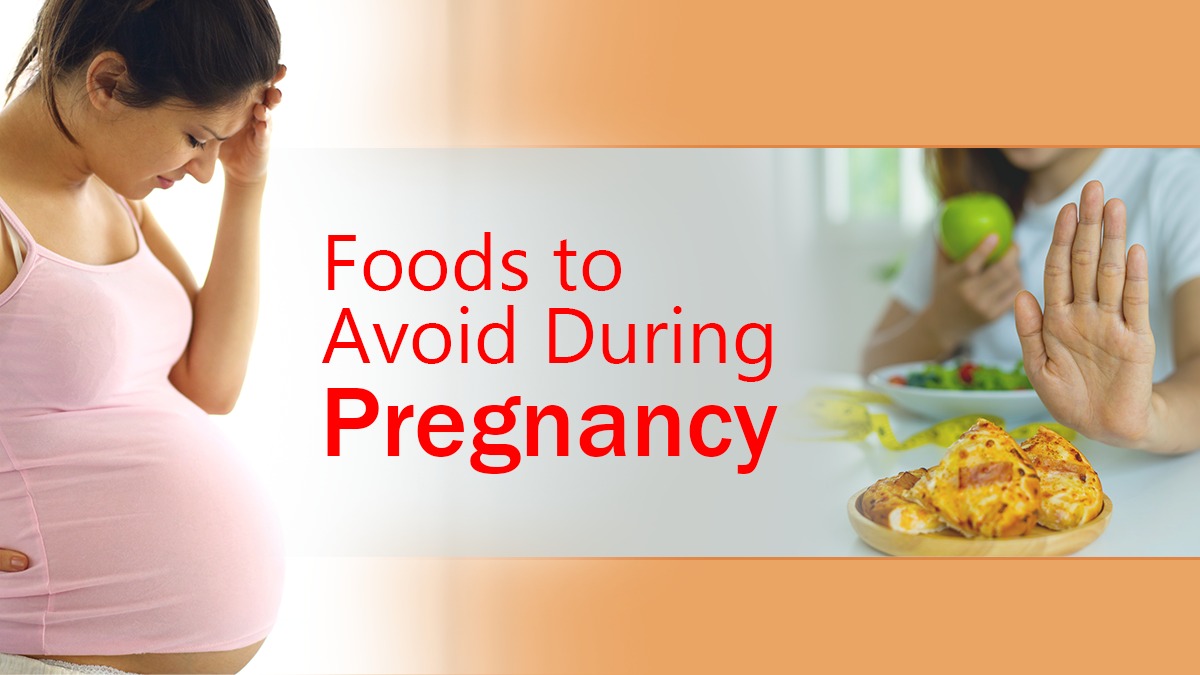So, you have just received the wonderful news that you are pregnant and want to know what foods to avoid to make sure that the precious being that's growing inside you will be safe? Well, congratulations on the good news and kudos to you for being a responsible mom!
And indeed, you have come to the right place, for in this post I'm going tell you what kind of foods you should avoid until your baby is born and why you should avoid them.
#1 High-Mercury Fish
There are certain fishes that contain relatively high amounts of mercury, a heavy metal due to their predatory diet and habitat.
Mercury you can ingest by consuming these fish can get to the developing fetus’ systems through the placenta and affect the growth of its brain and nervous system.
Here's list of fish likely to contain higher levels of mercury:
- Shark
- Swordfish
- King mackerel
- Tilefish
- Barramundi
- Gemfish
- Orange roughly
- Ling
- Southern bluefin tuna
#2 Raw and Undercooked Fish and Meat
Another type of food to avoid during pregnancy is raw or undercooked fish and meat such as sushi, sashimi, ceviche, and raw shellfish like oysters, scallops, or clams due to the potential for bacterial contamination and infections.
Uncooked seafood, as well as rare or undercooked beef and poultry, pose risks of coliform bacteria, toxoplasmosis, and salmonella. Exposure to these bacteria can lead to food poisoning, which can be harmful to the developing baby. Cooking meat thoroughly is vital to eliminate these risks.
To ensure the safety of the meat consumed during pregnancy, here are some guidelines to follow:
- Thorough Cooking: Cook all meats thoroughly, make sure they are not pink and have no blood coming out of them.
- Poultry, Pork, Sausages, and Burgers: Be especially cautious with these, ensuring they are cooked well to eliminate any potential bacteria.
- Use of Food Thermometer: Use a food thermometer to check the internal temperature of the meat. For instance, cook beef, pork, veal, and lamb roasts, steaks, and chops to at least 145°F (63°C) with a 3-minute rest time. Ground meat should be cooked to at least 160°F (71°C).
- Hot and Steaming: When preparing poultry like chicken or turkey, ensure the meal is steaming hot all the way through before consumption.
- Avoidance of Raw or Undercooked Meat: Refrain from consuming raw or undercooked meat, including beef, poultry, pork, hotdogs, and deli meat, unless they are heated until they are steaming hot or reach an internal temperature of 165°F (73.9°C).
By taking these precautions, you can significantly reduce the risk of foodborne illnesses associated with the consumption of undercooked meat during pregnancy. It's an impactful step towards ensuring your baby will be born healthy.
#3 Unpasteurized Dairy Products
Unpasteurized dairy products can potentially contain bacteria such as Listeria, E. coli, and Salmonella. Consuming these products can lead to foodborne illnesses, which may harm the developing baby. So, follow these guidelines whenever you consume dairy products :
- Choose pasteurized dairy products, as they have been heated to kill any pathogens, reducing the risk of foodborne illnesses.
- Avoid unpasteurized milk and milk products, as well as soft ripened cheeses like brie, camembert, and chèvre, unless cooked until steaming hot.
- Cook cheese until it's steaming hot to kill bacteria, reducing the risk of listeriosis.
By following these precautions, you can reduce the risk of foodborne illnesses associated with unpasteurized dairy products during pregnancy.
#4 Undercooked Eggs
When it comes to eggs, ensure they are thoroughly cooked. Raw or undercooked eggs may contain salmonella, which poses risks during pregnancy. Enjoy eggs in well-cooked forms, such as scrambled or hard-boiled, to minimize any potential health concerns.
#5 Excessive Caffeine
While moderate caffeine consumption is generally considered safe during pregnancy, excessive intake should be avoided. High levels of caffeine have been linked to an increased risk of miscarriage. Go for decaffeinated options or limit your daily consumption of coffee, tea, or cocoa to a safe range.
#6 Unwashed Fruits and Vegetables
Fresh fruits and vegetables are essential for a healthy pregnancy, but you must make sure they are thoroughly washed to remove any contaminants. Unwashed produce may carry harmful bacteria or pesticides, so make cleanliness a priority when preparing your meals.
#7 Alcohol
If you're pregnant or planning to become pregnant, you must not drink alcohol, there are no two ways about it. Drinking alcohol during pregnancy can lead to long-term harm to the baby, and the more you drink, the greater the risk. Alcohol passes from your blood through the placenta to your baby and can seriously affect its development. The baby does not have a fully developed liver and cannot process alcohol. Drinking alcohol during pregnancy increases the risk of miscarriage, premature birth, and your baby having a low birth weight. It can also affect your baby after they're born, causing a serious life-long condition called fetal alcohol spectrum disorder (FASD), which can lead to problems with learning, behavior, joints, bones, muscles, organs, managing emotions, developing social skills, hyperactivity, impulse control, and communication.
There is no known safe amount of alcohol use during pregnancy or while trying to get pregnant. All types of alcohol are equally harmful, including wines and beer. Fetal alcohol spectrum disorders (FASDs) are preventable if a baby is not exposed to alcohol before birth.
#8 Processed Meats
Certain processed meats, such as deli meats and hot dogs, may be contaminated with listeria, a bacterium that poses risks during pregnancy. If you choose to consume these, ensure they are heated thoroughly to reduce the risk of foodborne illnesses.
#9 Artificial Sweeteners
While some artificial sweeteners are considered safe in moderation, it's advisable to consult with a healthcare professional before using them during pregnancy. It's best to go for natural sweeteners like honey or maple syrup when possible.
Conclusion: Nurturing a Healthy Pregnancy
In conclusion, maintaining a healthy diet during pregnancy is vital for the well-being of both mother and baby. Being aware of foods to avoid ensures a safe and nurturing environment for the developing child. Consult with your healthcare provider for personalized guidance on your dietary choices during this special time.
]]>


-(2).png)
Comments 0
No comments yet
Be the first to share your thoughts!
Leave a Comment